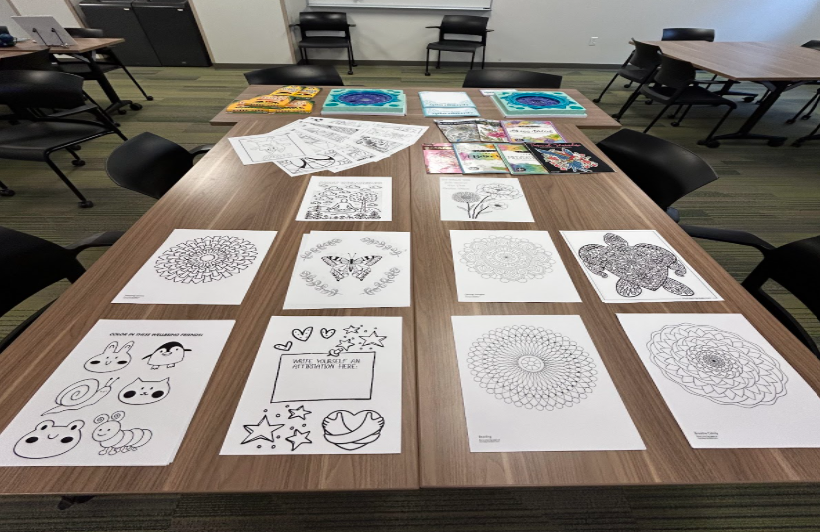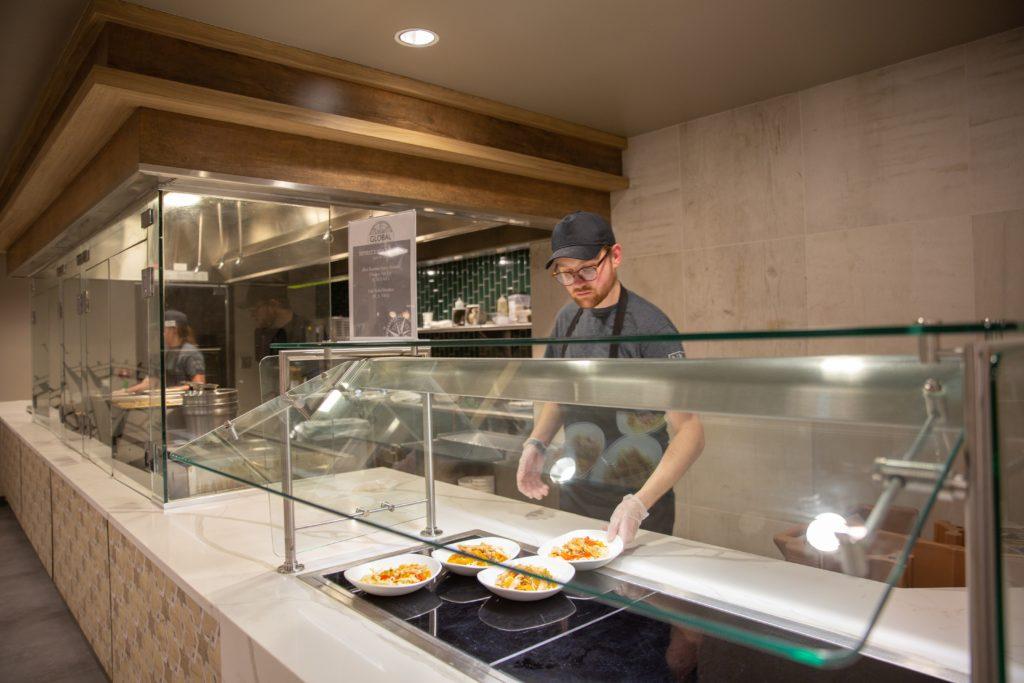University students have the luxury of walking through a building or across the quad when they’re ready for a meal. Granny swipes their ID cards and then they’re presented with several carefully crafted choices no matter what time of day. It can be difficult to imagine all the time, effort and countless hours of planning that go into functionally operating essentially a restaurant that feeds over 5,500 people daily. However, there is a precise system formed of trial and error that shapes Northern Lights Dining (NLD).
In the NLD there is a hierarchy to ensure that day-to-day operations run smoothly. Associate Director of Dining Services Paul Schoonveld supervises the whole process often on the floor at the dining hall overseeing the operation management and culinary teams.
“Since the time I was seven, I have wanted to work in food service, with food, with people,” Shoonveld said. “The university setting is a great place. It’s pretty much like we run 10 restaurants everyday down here which is great.”
There are three operation managers, Dan Lynch being one of them. The culinary team is broken down between Food Service Specialist (FS) 2 and 3. There are two FS3s that are the lead cooks, one of them being Eddie Hurley. The FS2s work in the back of the house assisting in the cooking operations while the FS1s work in the front of the house doing things like replenishing the condiment bars, drink machines and desserts.
“I would say that the culinary program that we have in our department is as good, if not better than a lot of the local restaurants,” Schoonveld said. “We’ve got a phenomenal team and I think that’s what brought me in and keeps me rolling and motivated.”
Each of the staff members do their part to make certain students are provided with many healthy and appetizing options for each meal. If that takes some adjusting, the managers and the culinary team are happy to do it.
“The menus aren’t totally created by the management team specifically,” Lynch said. “We’re not always the ones out on the floor working hands on so we get a lot of information from our cooks like what dishes work, what doesn’t work, what needs to be changed and how can we make it better.”
The dining hall menu runs on a four-week cycle. After the fourth week, the meals start back on week one. However, the team is able to avoid being repetitive by making adjustments to meal that didn’t work well, removing less popular recipes and repeating the big hits.
“Our goal is to make it that you can’t decide what you want to eat on any one given day,” Shoonveld said.
Lynch has worked in my food service jobs, most recently at the retail locations Temaki and Tea and Fieras. After originally graduating from NMU, Lynch went back to school to get another degree in Hospitality Management.
“Throughout the semester well try to do some operational enhancements, bring back things, maybe a recipe that requires a little more labor,” Lynch said. “We start with a pretty small student team and it kind of builds as we go throughout the semester. Once we get to that point where we’re doing okay, we can start adding stir fry bar in or omelette bar, just do things the students like to see.”
The whole dining team strives to provide what the students want. They rely on feedback in order to adapt the best they can.
“We meet with the food advisory board, which is a group of students in the dorms,” Lynch said. “We meet with them monthly, they kind of give feedback about what they’re hearing. A lot of that feedback has a major impact on our menu.”
Lynch, FS3 lead cook previously worked in the Michigan State University dining service operation before coming to NMU and starting at Temaki and Tea in 2017.
“We took some time during spring break, our management team sat us down and said, ‘What can we do to enhance our production and give the kids something new?’” Hurley said. “So we sat down as a team and put some ideas down to end last semester on a bang. That’s one way that our team contributes to formulating our menus.”
Shoonveld said the dining team “puts a lot of weight in experience.” Many of the culinary experts on staff have exposure to national and international operations at various restaurants.
“We work really closely; it’s not just a one man show. It’s a team effort all the way around,” Lynch said.



























